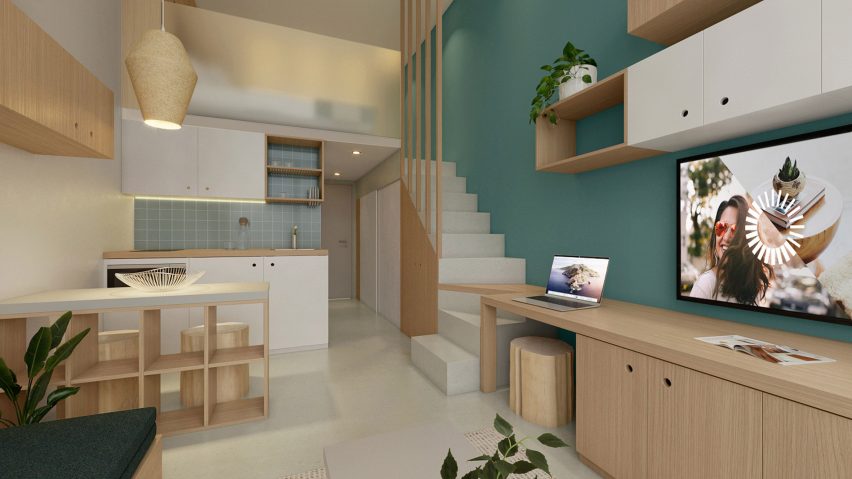
PriestmanGoode to design interiors of vast Indian co-living spaces
PriestmanGoode has unveiled designs for the interiors and branding of Indian co-living venture Olive, which will launch with a 15,000-bed community in Bangalore.
Launched by Indian real-estate group Embassy Group, the first phase of the Olive co-living project will be a 15,000-bed development in Bangalore.
This will be joined by 2,500-bed spaces in Pune and Chennai. Each community is designed to minimise the potential social isolation of urban living by providing shared spaces for residents to relax and eat meals.
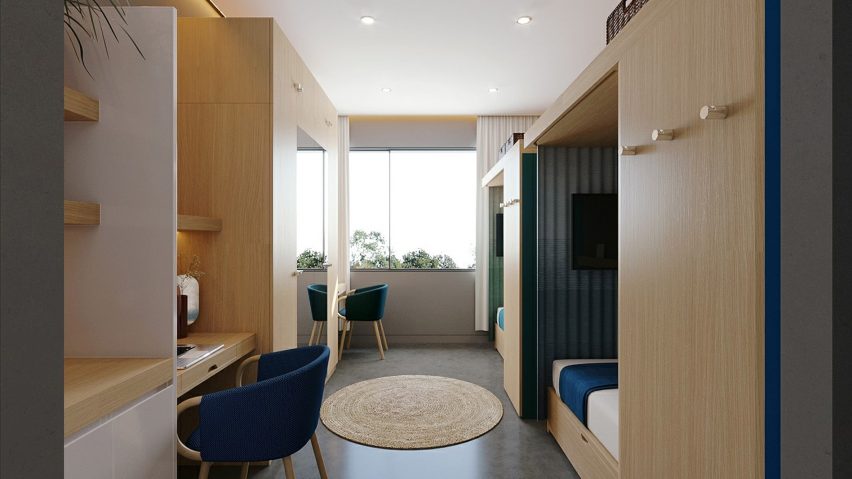
Olive aims to address the lack of affordable housing options for the 36 million students and growing number of young professionals, who make up the largest demographic in India.
"The shared economy concept has percolated all aspects of society, creating unprecedented disruptions as well as opportunities," said Olive co-founder Aditya Virwani.
"Today it is not just the scarcity of spaces or living in congestion that are driving co-living, but also the affordability and flexibility, aspirations of the current generation, transition from owning to sharing, the digital economy and technological innovation."
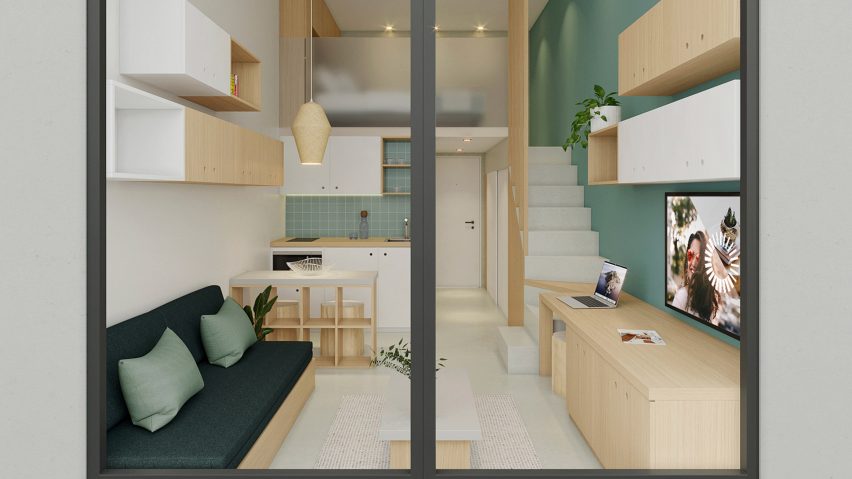
PriestmanGoode is responsible for all aspects of the design, from the branding to the interiors of the co-living communities themselves.
The studio has prioritised common spaces to encourage a sense of community, including cafes, shared kitchens, a laundry, on-site convenience store, and co-working areas. Communal areas are complete with lush green planting.
Wellness centres, a cinema, gaming and karaoke rooms and rooftop terraces will be integrated into the design, to give the feeling of a high-end hotel.
"Olive is a place that feels like home, that gives users the privacy they need when they want it, with all the facilities of a luxury hotel," said Paul Priestman of PriestmanGoode.
"The attention to detail is across every element of our designs, from the logomark and the application of the brand on different platforms, to the interiors, where each element of the room has been designed bespoke to create a beautiful, highly functional space."
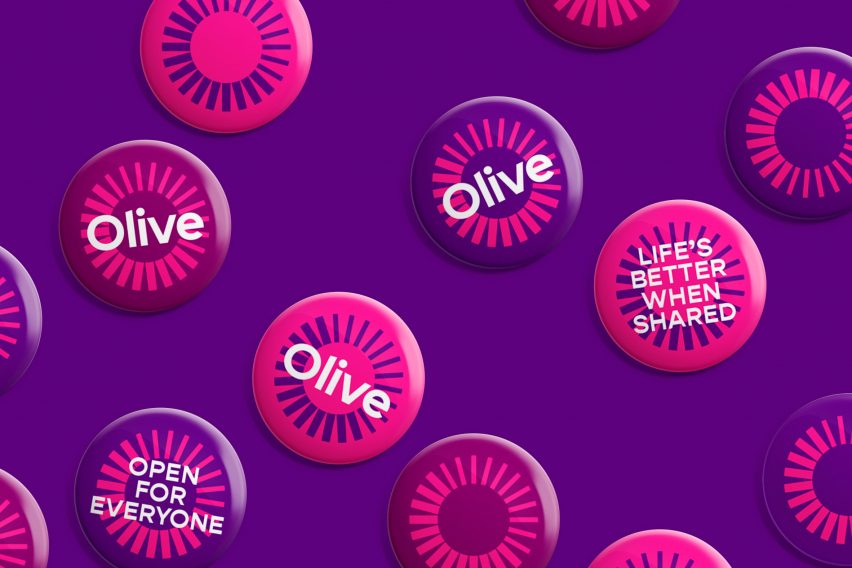
All bedrooms have a 21-square-metre footprint, with single and double occupancy options, whilst double rooms will also offer a small lounge area.
Single mezzanine rooms function as a small apartment, with a lounge area and kitchen below and bedroom raised above.
The studio referenced traditional Indian materials such as wood and rattan, combined with a minimalist concrete aesthetic for the interiors of each project.
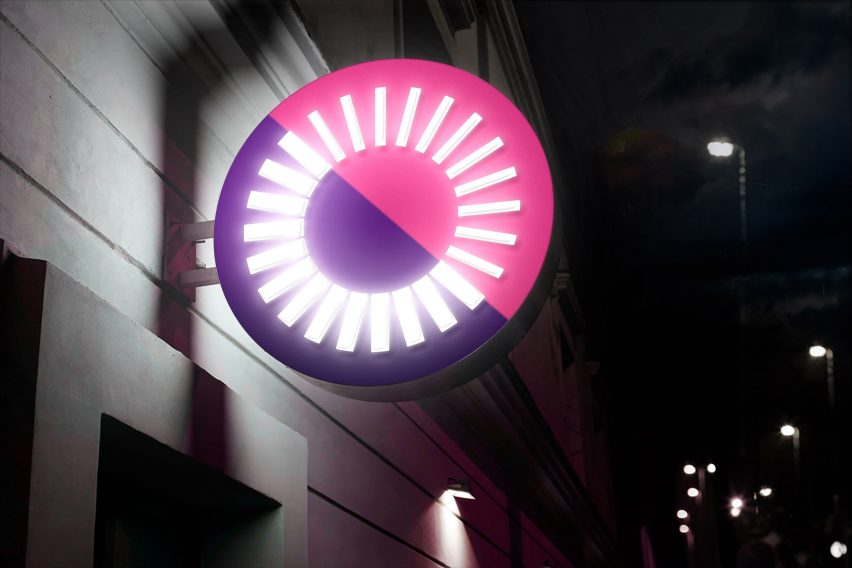
For the brand identity, PriestmanGoode again looked to Indian visual and cultural heritage.
"Developing a new brand from scratch is a dream project to work on," said PriestmanGoode head of brand, Anthony Morgan.
"What we have created for Olive is a dynamic brand that reflects the key values Embassy wanted to convey for this new asset: openness, community, digital innovation and shared experience."
The logo is in dual tones of amethyst purple and fuchsia pink – typical colours in Indian textiles and of the coloured powders associated with the Holi festival.
The O of Olive features 24 bars, to demonstrate the 24-hour nature of the operation, and as a reference to the 24 spokes on the Indian flag. The logo will also function as a clock in public spaces.
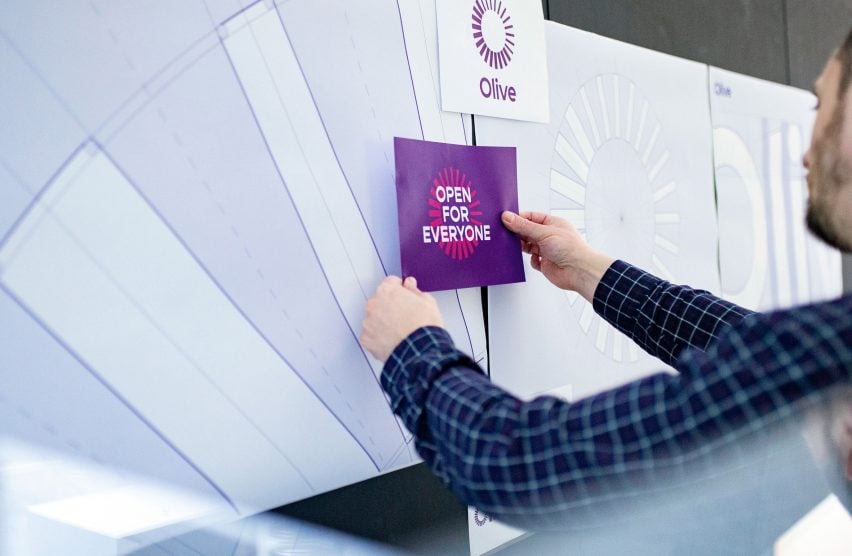
Embassy Group has plans to roll out the co-living spaces internationally, so PriestmanGoode also took this into account when creating the brand identity.
"We are proud to have worked with Embassy Group to develop this new brand of co-living," said Priestman.
"We've created something that offers young people a good quality of life, in a market where there is very little choice."
PriestmanGoode has previously redesigned the interior of the Airbus A380, a collaboration Paul Priestman described as "a dream project".